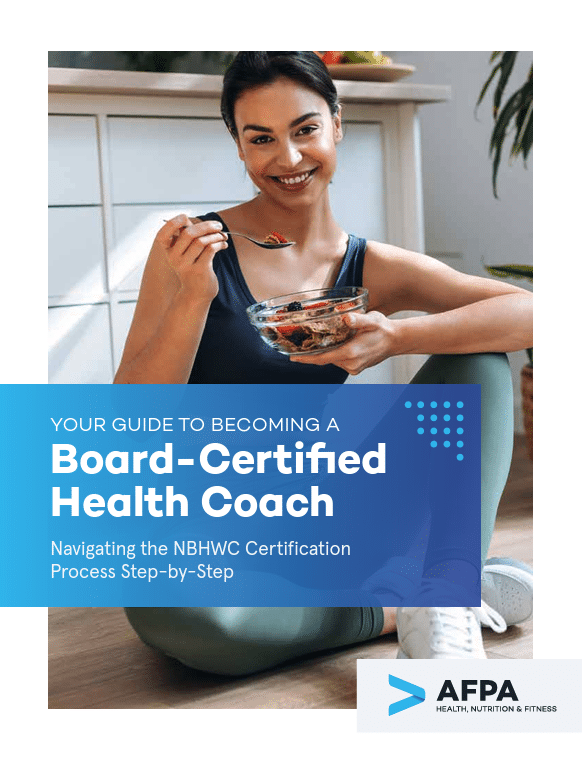Forging a business in the health and wellness industry isn’t easy, even for certified professionals. Though there’s tremendous competition to secure clients and establish yourself as a health expert, the rewards of helping others (and making a living while doing it) are well worth it for many professional health coaches.
There’s a good reason to consider joining the wellness industry. Global Wellness Institute valued the field at over $4.2 trillion in 2017, and the interest in preventative, personalized healthcare keeps increasing. If you’re trying to establish yourself as a health coach professional, then it’s time to learn what it takes to win over new clients.
Top 15 Tips for Attracting Health Coaching Clients
Do you feel like it takes you more time and energy than it should to gain a client? That’s not unusual. Many certified health coaches are overwhelmed with website visitors and free trial clients that never book them for appointments. A crowded marketplace can make it difficult to complete, which is why you need to determine what sets your practice apart and help others to see that too. In other words, you need to master your marketing.
If you’re ready to take your coaching business to the next level and land your dream clients, these fifteen tips will provide you with the blueprint on how to get health coaching clients.

Learn How to Set Yourself Apart as a Board-Certified Health Coach
1. Niche Yourself Narrowly
To set yourself apart from the competition and create more value for your professional expertise, considering focusing on a particular population, or niche , to create more value for your services. Think about it—would a potential client with stomach problems rather visit a “women’s health coach,” or a “post-menopausal digestive specialist”?
It’s critical to note that you don’t need to narrow yourself down to just one niche. Instead, it’s a better idea to think of your practice as a tree trunk, and your various niches as limbs on the same tree. Make it clear what benefits clients can gain from working with you, and articulate precisely how you can solve their problems. This helps you appeal to the demographic that you’re most interested in so that you stand out from the competition.
2. Take Your Promotions Offline
It’s easy to get caught in the mindset that the only way to drum up new coaching business is to post about your practice on Facebook. However, the internet can’t replace the power of building up your credibility and connections in the real world. Attend a trade show, strike up conversations while in line to get coffee, and keep your business card handy at all times.
It’s also smart to attend community events that align with your specialty. For instance, a women’s health coach should consider attending local pregnancy classes to meet community members that would potentially be interested in her services. You might be amazed at the amount of business you can drum up by keeping yourself approachable and willing to talk about your practice while in public.
3. Treat Your Business Like a Brand
To succeed as a health coach, you first need to sell yourself to clients. What should they first think of when you come to mind? Your brand needs to underline the passions and beliefs that you’re bringing to the table in ways that are immediately apparent to anyone considering your service. Find ways to work your personal story into your branding to keep you relatable. The goal is to make your brand authentic and approachable so that you draw others in.
4. Run a Group Workshop
Looking to create a better awareness of your business in the community? Run a group workshop! See if you can rent out space in a local gym or wellness center, and teach a class that corresponds with your central branding. For instance, nutrition coaches could give a lecture on the benefits of probiotics and demonstrate how to make sauerkraut, or fitness experts can teach a session about establishing an office yoga program. Your goal is to drum up enthusiasm for your subject matter and establish yourself as an expert within it.
Note: while it might be tempting to offer your workshop for free, you may have a better chance of making it seem worthwhile if you charge for it. You’re an expert, and you don’t want to short-sell the value you provide.
5. Offer a Free 15-Minute Discovery Call for All Potential Clients
If you have a roster of people interested in your business but are slow to commit, offer to provide them with a free 15-minute discovery call. This gives enough time for you to help them identify the ways that you can help them, but it isn’t long enough for them to forgo wanting to meet with you in the first place. It’s best to develop a straightforward process for these conversations with a predetermined list of questions so that the time is valuable for both of you.
6. Give All Your Previous Clients a Call to Reconnect
Do you have a collection of past clients you haven’t heard from in a few months? It’s time to call them up and see how they’re doing. Keep the call light and conversational, and refrain from excessively focusing on your interest in working with them again. The goal is to be authentic and interested in their health so that they will continue to see you as a trusted expert they want to confide in when necessary.
7. Make Connections with Other Professionals for Referrals
The health and wellness community is expansive, so consider reaching out to others in your broader industry for professional referrals. Make connections with the kinds of businesses that your clients interact with, including baristas, chiropractors, hairdressers, personal trainers, yoga teachers and more.
Practice honing your “elevator pitch” so these professionals will understand why they should recommend you in the first place, and ask if you can leave a stack of business cards in a prominent place. For the best results, offer a referral fee for every new client they help you secure.
8. Find Where Your Dream Clients Lurk Online
There are plenty of benefits to be gained from establishing your business on the internet. Put your practice on coaching sites like Coach.me and Clarity, keep your LinkedIn profile up to date, and join Facebook groups that are relevant to your business niche.
It’s also smart to build and maintain a professional website with plenty of opt-in email sign up forms. Potential clients often decide on your service within a few seconds of landing on your page, so it pays (literally) to invest in creating a great first impression. Don’t forget to optimize your site for mobile since most of your potential clients will probably find you while scrolling on their phones.
9. Take a Part-Time Job That Gets You Around People
If you’re struggling to bring new clients through your door, you might consider getting yourself out into the community more by way of a part-time job or volunteer positions. The connections you make and conversations you have about health may help you establish a layer of trust and ultimately lead to a new health coach client.
10. Raise Your Rates!
If you’re struggling to pull in enough health coaching clients, you might need to raise your rates. Low prices cause many people to question your value, and you want to be clear to clients that you prioritize their health by pricing your services accordingly.
11. Improve Your Professional Local Publicity
Is your practice the first one that comes to people’s mind in your community? If not, you need to work on your publicity in local media sources. There are dozens of ways to drum up interest, including getting interviewed for a niche-specific podcast, writing a guest post for a popular blog, or even crafting a letter to the editor of your local paper about the importance of holistic health treatment. The goal is to get your business’s name coming up frequently enough that it immediately pops to mind when people think about pursuing coaching services.
12. Run a Free Challenge to Get Potential Clients Excited About Their Health
One of the benefits of the social media age is that it’s easier than ever to host virtual contests. Post a free challenge on your Facebook page or through your newsletter, and offer incentives for people who complete it successfully. Options include a 30-day sugar detox challenge or a “power pushup” week where people post pictures of themselves exercising on your web page to enter a drawing for free coaching. The goal is to get people excited about their health, have them interact with you and each other, and develop a sense of loyalty to your practice. There’s no limit to the challenges you can host, so feel free to get creative!
13. Make Your Service Package Clear and Understandable
The last thing you want is for your potential clients to feel confused about what you offer them, so find ways to make your advertising material explicitly clear. Will they learn how to cook healthier dinners for their family? Will you help them hone-in one what’s harming their gut health? And how much time will they get with you for the price? Make sure that you provide clear package and pricing information and make it easy for clients to contact you if they’re confused.
14. Focus on Selling the Transformation
In the health coaching world, it’s often easy to forget that the end goal is to create a transformation for every client. Your business isn’t to sell courses or counseling sessions, but to help those you work with experience their best health. Focus on displaying the real-world value of your sessions to potential clients by highlighting success stories, referencing case studies, and collecting testimonies from past clients. You want everyone considering your practice to visualize themselves going through the same transformation and living a better life because of it.
15. Ask Five People What They Want to Improve About Their Health
Finally, does your health coaching business address a real need for those around you? Focusing on the value of going gluten-free will be meaningless for your potential clients if they’re more concerned about the health effects of heavy metal toxicity. To ensure that you’re addressing the pain points of your target demographic, find five (or more) people to interview and start asking them in-depth questions about their health concerns. Don’t assume you already know the answers. Strive to listen hard to what they are saying. Your goal is to find ways to echo this language in your marketing material to ensure you are identifying ways to add real value to their lives.
With AFPA, you can become a health coach and make a positive impact on the lives of others by helping them achieve their health goals.
Boost Your Health Coaching Business by Retaining More Clients
Making yourself stand out as a coach can feel overwhelming, but these tips should help you get more health coaching clients than before. Stay consistent with your messaging and strive to be as authentic as possible, and clients will sense your value and become willing to commit to your coaching. It’s a win for your business, and for the health of those you work with.
Learn How to Stand Out as a Top-Tier Health Coach in 5 Steps




